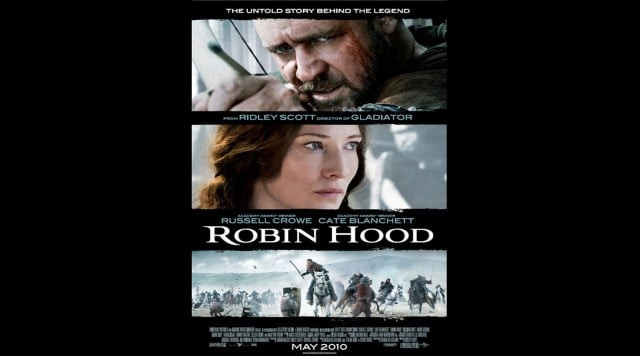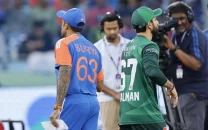boyz in the hood

The story is set in 13th century England. Richard the Lionheart dies in battle in France and Robin, along with a band of loyal followers, abandons the English army and returns to England posing as a knight.
Things aren’t going well in the homeland, as the King’s greedy younger brother John has taken control of the throne and begun an evil reign of tyranny and harsh taxation, advised by a two-timing adviser who is secretly plotting to help France overthrow his royal personage.
Meanwhile, Robin, played by Scott’s pet favourite Russell Crowe, travels to Nottingham to fulfill a dying man’s wish. He chances upon Lady Marion, played by Cate Blanchett. Incensed by the injustices being committed against the poor in Nottingham and eager to impress the luminous Lady Marion, Robin offers to help the king fight France on one condition — the poor must be allowed to live in liberty and peace.
Now, this is an accomplished film about clashing social and economic classes and peasant rebellions, but the viewer is often left wondering where ‘Robin Hood’ comes into all this.
In fact, in many instances the film bears more than a passing resemblance to Ridley Scott’s Oscar-winning Gladiator. Crowe’s performance for example is barely distinguishable from his turn as Roman general Maximus Meridius. The fact that Robin spends far too much time on a horse swinging a sword Gladiator-style instead of wielding a bow and arrow certainly doesn’t help.
Blanchett, on the other hand, brings a surprising depth to Lady Marion’s character. Clearly one of the finest actresses of her generation, Blanchett’s Marion is feisty, and Crowe’s best scenes are those in which they bicker over a simmering sexual chemistry. Another central character to watch out for is Walter, Lady Marion’s father-in-law played just right by Max von Sydow. His senile bumbling and well-meaning designs to get Robin and Marion together are endearing enough to make him one of the most loveable characters in the film.
At the end, even though the viewer knows this is meant to be the ‘untold’ story, the film is a bit of a letdown. Robin Hood really isn’t complete without his band of merry men, but they’re barely given any screen time. Robin Hood is supposed to be a mean shot, but here archery plays second fiddle to political intrigue. Ultimately, all the missing ingredients add up and Robin Hood misses the mark.
Published in The Express Tribune, June 27th, 2010.



















COMMENTS
Comments are moderated and generally will be posted if they are on-topic and not abusive.
For more information, please see our Comments FAQ